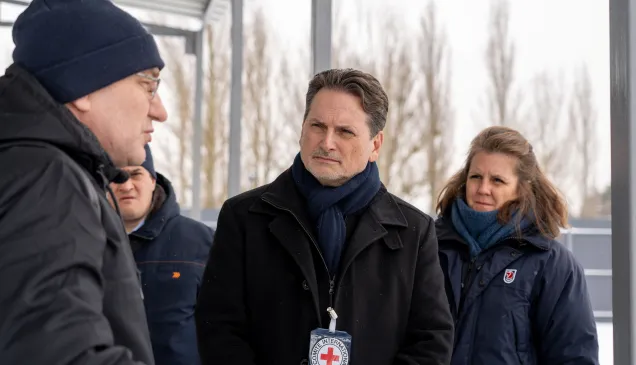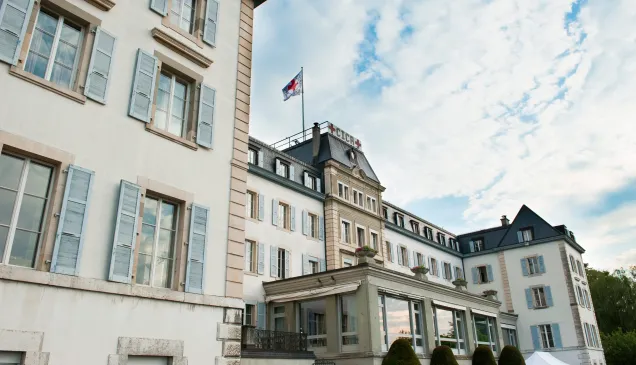Securing access to water in the conflict-affected areas of the Donbas
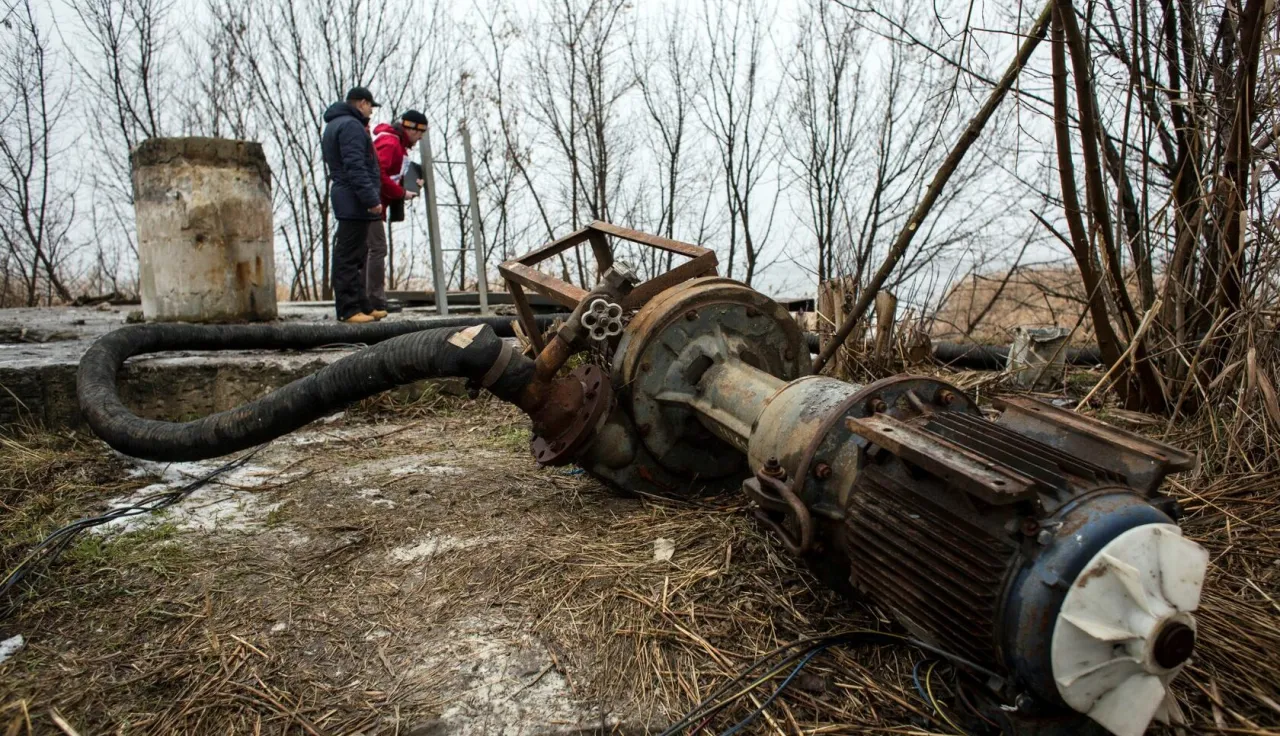
In times of war, it is essential that all parties ensure the continuous supply of a sufficient quantity of potable water, as well as other essential basic supplies to meet the daily needs of the civilian population.
As the world is struggling to contain the coronavirus pandemic, it has never been more critical to ensure uninterrupted water supply to maintain the hygiene standards required to prevent the spread of the virus.
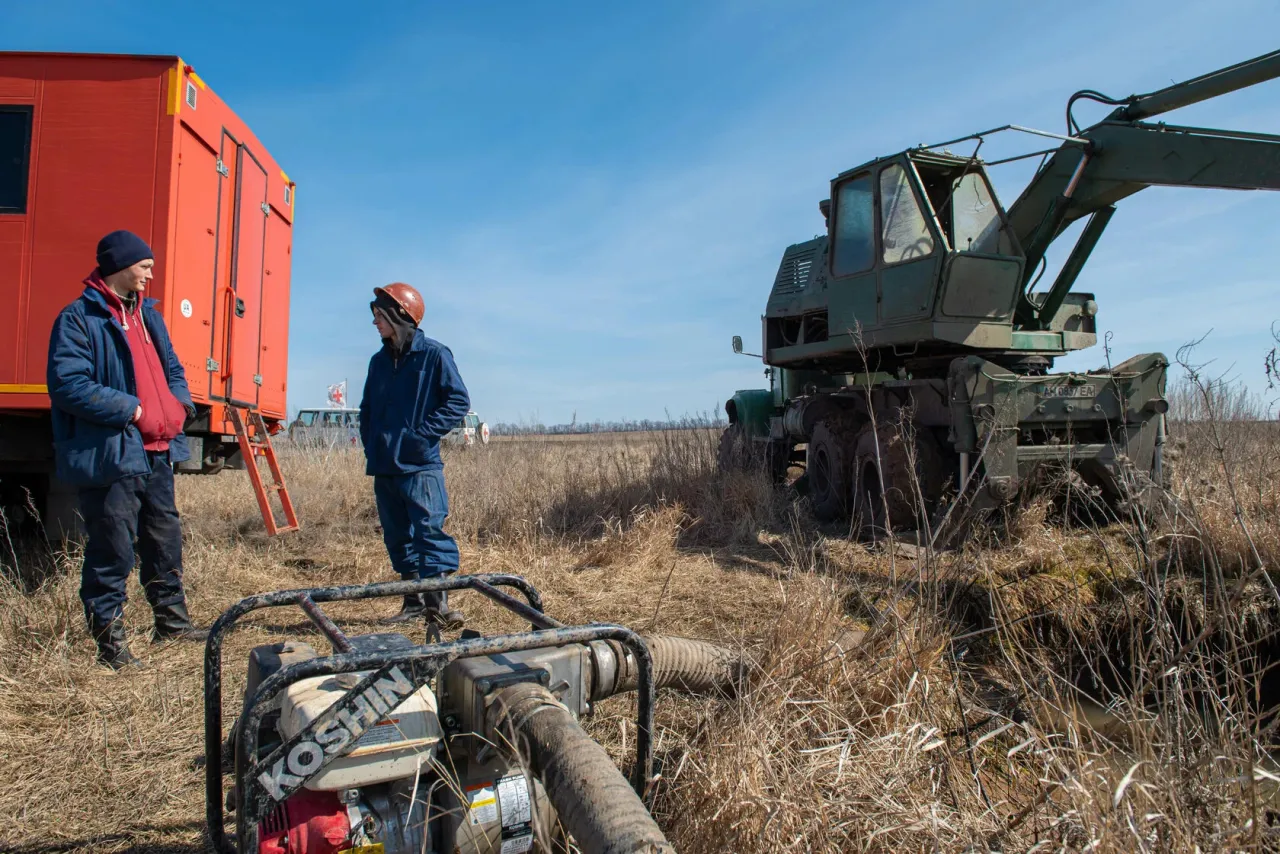
Water is a scarce commodity for many people in the Donbas, as the conflict in Eastern Ukraine enters its seventh year.
Aging and fragile infrastructure, and its demanding maintenance take their toll, while the increase in hostilities often translates into water cuts and impedes access of workers to the water supply systems.
The International Committee of the Red Cross (ICRC) responds to emergencies in the region by doing what it can to secure access to water for the civilian population. ICRC trucks deliver potable water to people in need.
We give constant support to water suppliers in the Donbas by providing equipment, consumables and water treatment chemicals.
We've also helped to restore damaged water objects and invested in the rehabilitation of back-up infrastructure to ensure a stable water supply in the conflict zone.
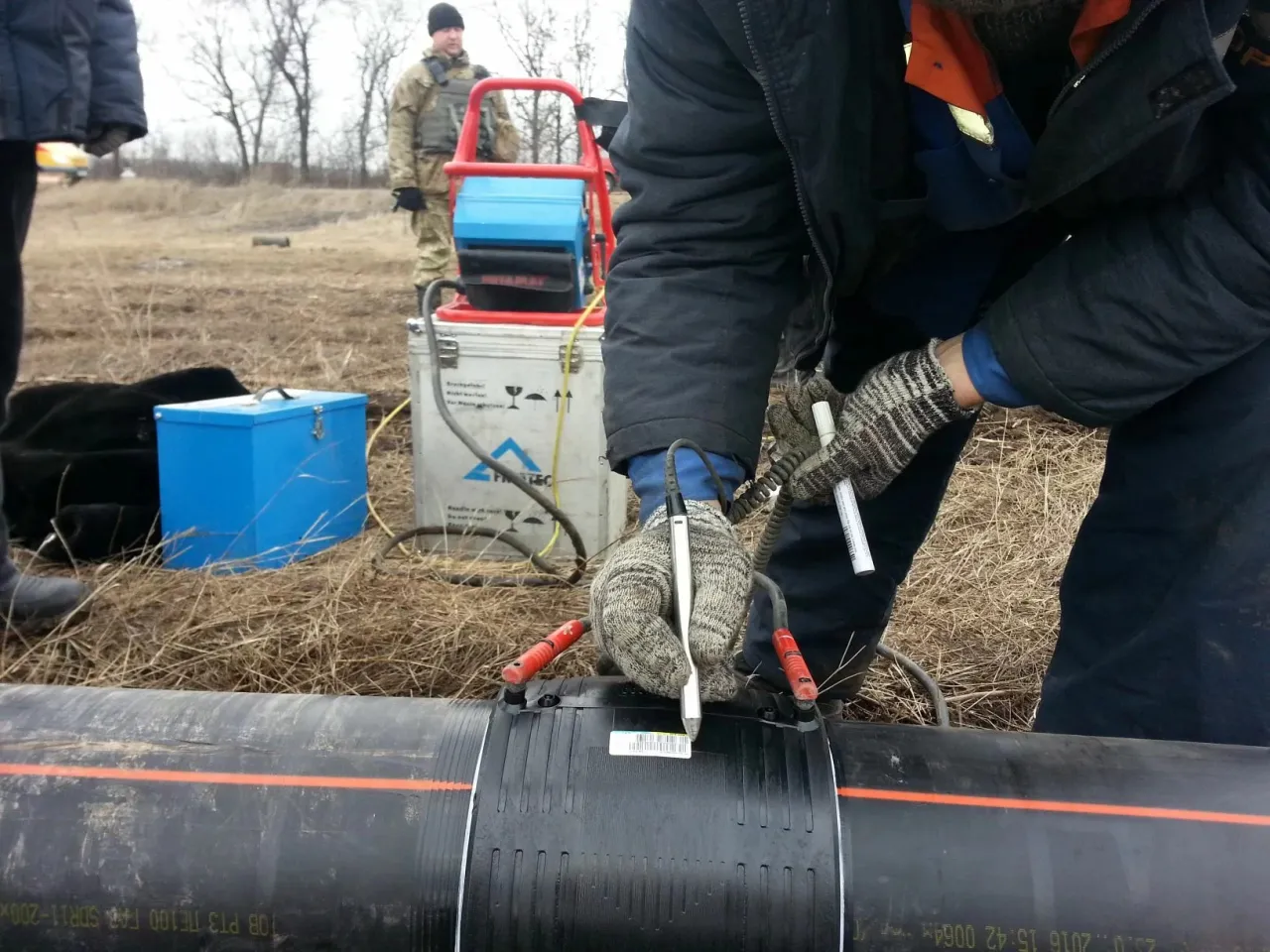
Highlights of our work on water infrastructure over the past year
Around 864,000 people on either side of the contact line were supplied with water as the ICRC provided materials and rehabilitation support to the water and sewage companies.
The assistance included rehabilitation of a power line to a pumping station, donation of specialized emergency brigade vehicles, provision of around 2,000 litres of fuel for emergency repairs, and 750 tonnes of water treatment chemicals.
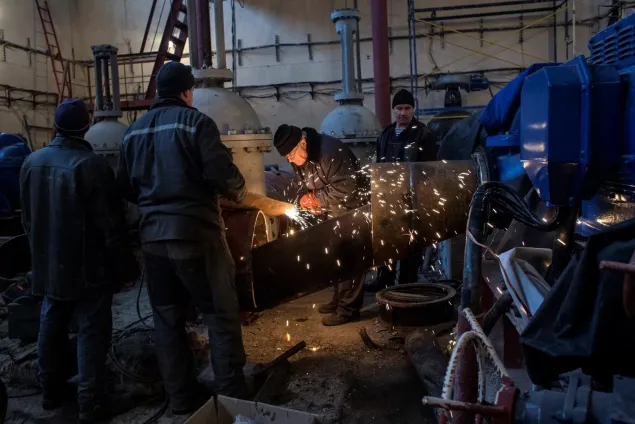
The ICRC donated 2,500 meters of tubes to Popasna water company to help them repair damaged water pipes, which are supplying water to about 350,000 people.
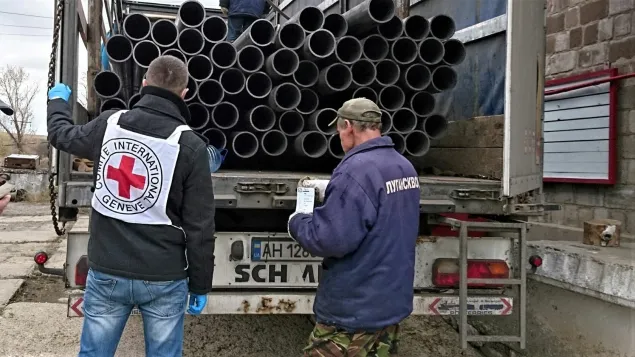
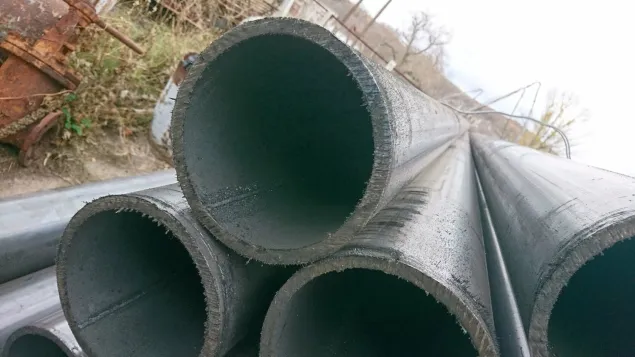

The ICRC has provided 36,600 liters of artesian water to cover the emergency needs of households and social institutions, arising from shortages in the drinking water supply on either side of the contact line.
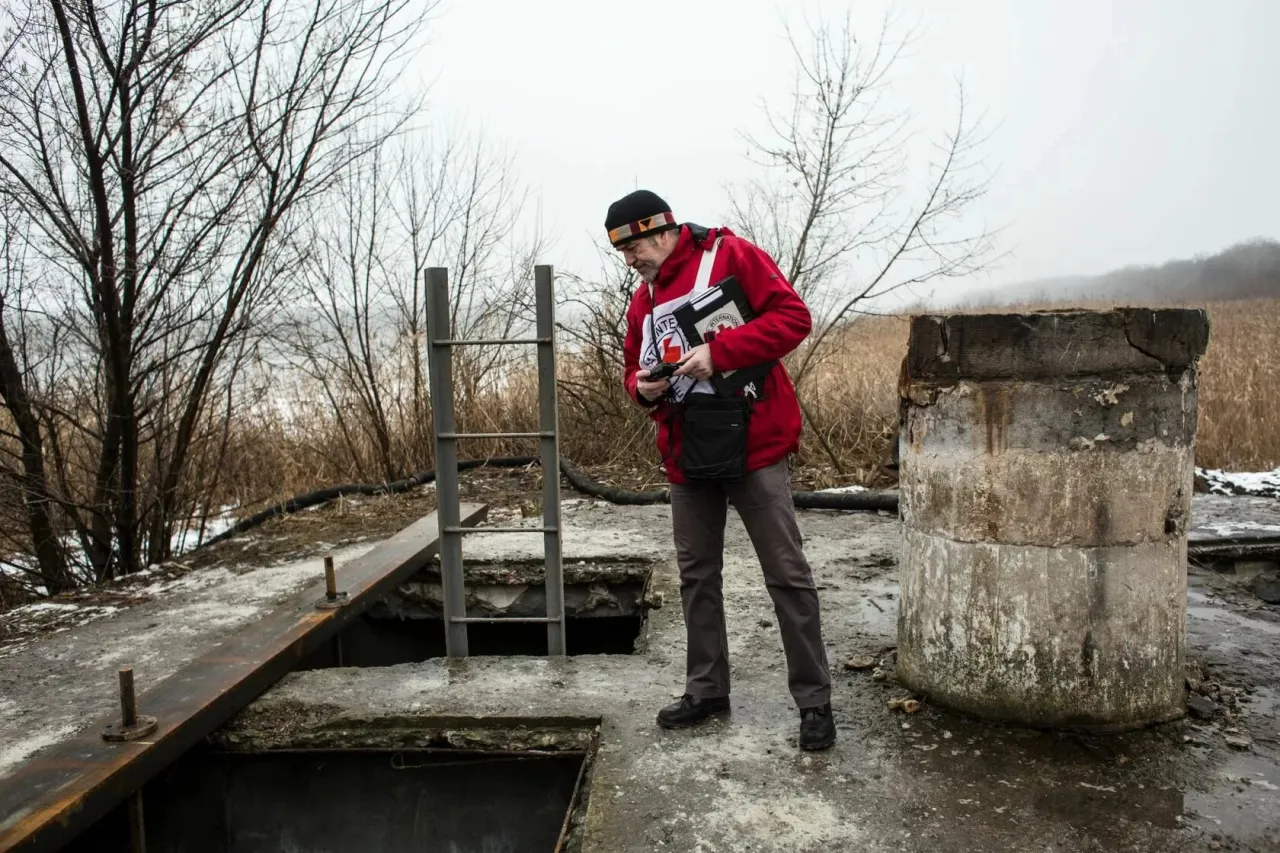
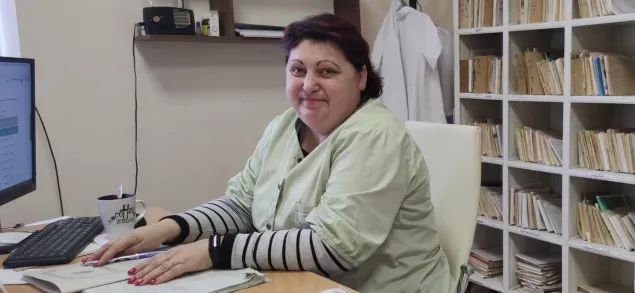
Ambulatory care in Luhanske is still recovering from the active hostilities of 2015. Nurse Liubov recalls that for some time doctors & health staff had to carry water from home, as the supply system was damaged. To improve conditions for 2,000 patients, the ICRC renovated the facility.</h2>
The ICRC has allocated funds for water and habitat activities that would support over one million people in 2021.
We will use those funds to continue helping people and communities, providing hospitals, schools, and kindergartens with fresh water as well as look forward to building resilience and share good outcomes and love with them.
Going with the flow: securing access to water in Eastern Ukraine
For more information, please contact:
Sanela Bajrambasic
Communications Coordinator
ICRC Ukraine
Kiev, Velyka Vasylkivska 6, building O
sbajrambasic@icrc.org
+380952628049
http://ua.icrc.org
https://twitter.com/ICRC_ua
https://www.facebook.com/ICRCUA/

